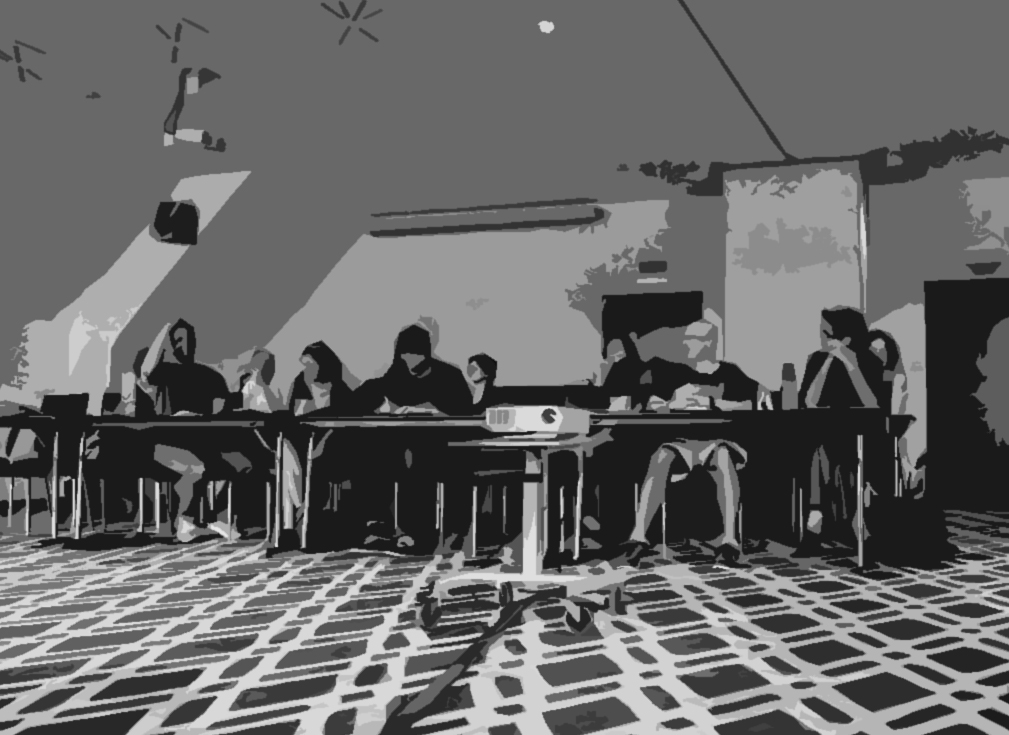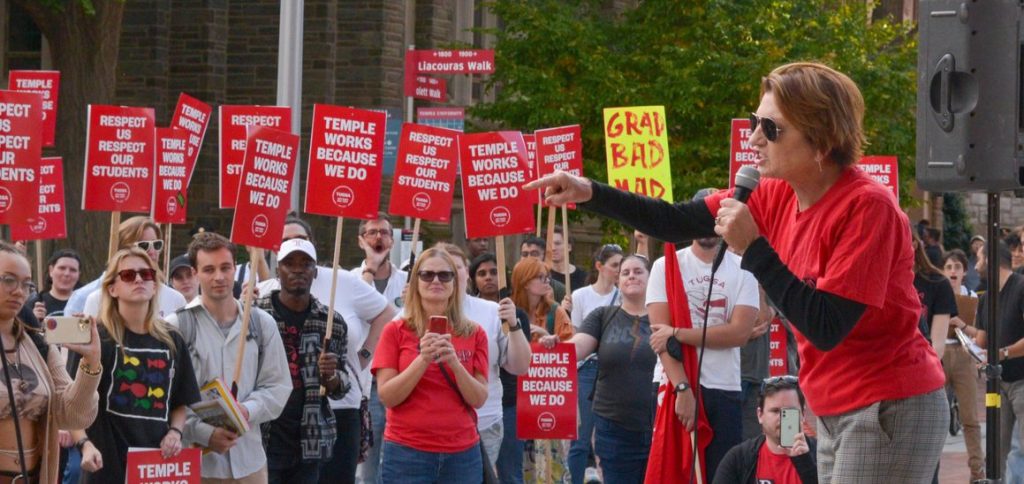A graduate student in philosophy has the responsibility of organizing a graduate student conference hosted by their department, and has some questions, starting with:
1. “Why put on a graduate student conference? What should the purpose of a graduate conference be?“

(modification of a photo by Simon C. May)
They write, “One possible answer is that it provides a low stakes opportunity for grad students to practice presenting and commenting. And the student presenters can get valuable feedback on their work.” But the student hase questions about how to address various issues:
2. “I don’t quite know how I should balance the needs and interests of the two main stakeholders: student presenters from other schools and the grad students at our school.”
3. “Which papers should we accept for the conference? The obvious answer is to accept the best papers. But there are competing goals. For example, I want the presenters to benefit from the conference. Our conference will have a (faculty) keynote speaker. So it seems there’s a reason to prioritize papers by graduate students that suggest they’d benefit the most from the keynote speaker’s presence.”
4. “I want to be inclusive of the diverse interests the audience (i.e. grad students at our department) might have. Not everyone is interested in the main theme of the conference, and I’d feel bad having them sit through the whole conference feeling bored. How many of the accepted papers should be ‘off-theme’?”
5. “Should location be taken in the consideration, by preferring students closer to our department since the travel cost would be lower?”
6. “Which parts of the conference do presenters and keynote speaker find the most value in?”
7. “How should I pick the conference theme? How narrow or broad should it be?”
8. “How can I get the grad students in my own department to be more invested in helping with the conference and making it good?”
They add: “In general, I want to hear from people who have attended and/or organized grad conferences. I want to know what they like and dislike about grad conferences, and how such conferences can be made better.”
Readers?
Graduate students at Temple University have been on strike since the end of January, seeking an increase in wages, more affordable healthcare, longer parental and bereavement leave, and better working conditions.

Faculty in the Department of Philosophy at Temple have issued a statement in support of their graduate student workers. Dated February 10th, it states:
As members of the Department of Philosophy faculty, we support the demands of the Temple University Graduate Students’ Association (TUGSA) in their current contract negotiations with the University. We also strongly oppose the University’s revocation of striking graduate students’ tuition and health insurance benefits. Our graduate students rely on Temple health insurance to meet their basic healthcare needs. Directly threatening the health and welfare of members of our student body evidences a disregard for our community and undercuts the University’s claims to care about equity.
Graduate workers are a key part of our department and our university: without them, we are not able to complete our own research, mentor undergraduate students, or effectively teach students in our courses. For over a year, TUGSA has put forward proposals to ensure fair wages, working conditions, dependent health care coverage, and leave policies for graduate TAs and RAs. These proposals would improve the lives of graduate workers, as well as benefiting our department and enhancing the quality of undergraduate instruction.
We believe that the members of TUGSA, even while they are on strike, remain Temple graduate students, and we hope that the University will refrain from unnecessarily harsh or disrespectful treatment of them.
Eli Alshanetsky, Philip Atkins, Katie Brennan, César Cabezas, Lee-Ann Chae, Eugene Chislenko, Paul Crowe, Kristin Gjesdal, Espen Hammer, Brian Hutler, Miriam Solomon, and David Wolfsdorf
Department of Philosophy, Temple University
You can learn more about the strike here.

Joshua Smart (Southern Illinois University – Edwardsville), once again, is organizing them. He writes in with the following information:
Signups are open through Sunday, January 29th. To join, fill out a short survey at www.jasmartphilosophy.com/virtual-dissertation-groups.
What it is: Virtual Dissertation Groups is a free service for those currently working on their doctoral dissertations in philosophy departments (or philosophy of science or the like). Since 2014, VDG has connected students from over 30 countries to provide peer feedback on dissertation work with a minimal time commitment.
How it works: Each dissertator is placed in a group of three on the basis of a short survey about their project/area of work. Toward the end of each full month of the semester, one member will send some work (3k – 6k words) to the other two, who then return feedback in a week or so. (Usually these are written comments, though some groups choose to have video discussions.)
Why it’s good: While advisors and committees are important, it can be incredibly helpful to discuss one’s work with peers in a lower-stakes environment and particularly enlightening to do so with those who take a different approach, outlook, or focus. There is even evidence from psychological research that even just thinking about problems in relation to persons who are geographically distant can promote creative insights. With students at a variety of programs and from around the world, VDG is a great way to capture some of these benefits!